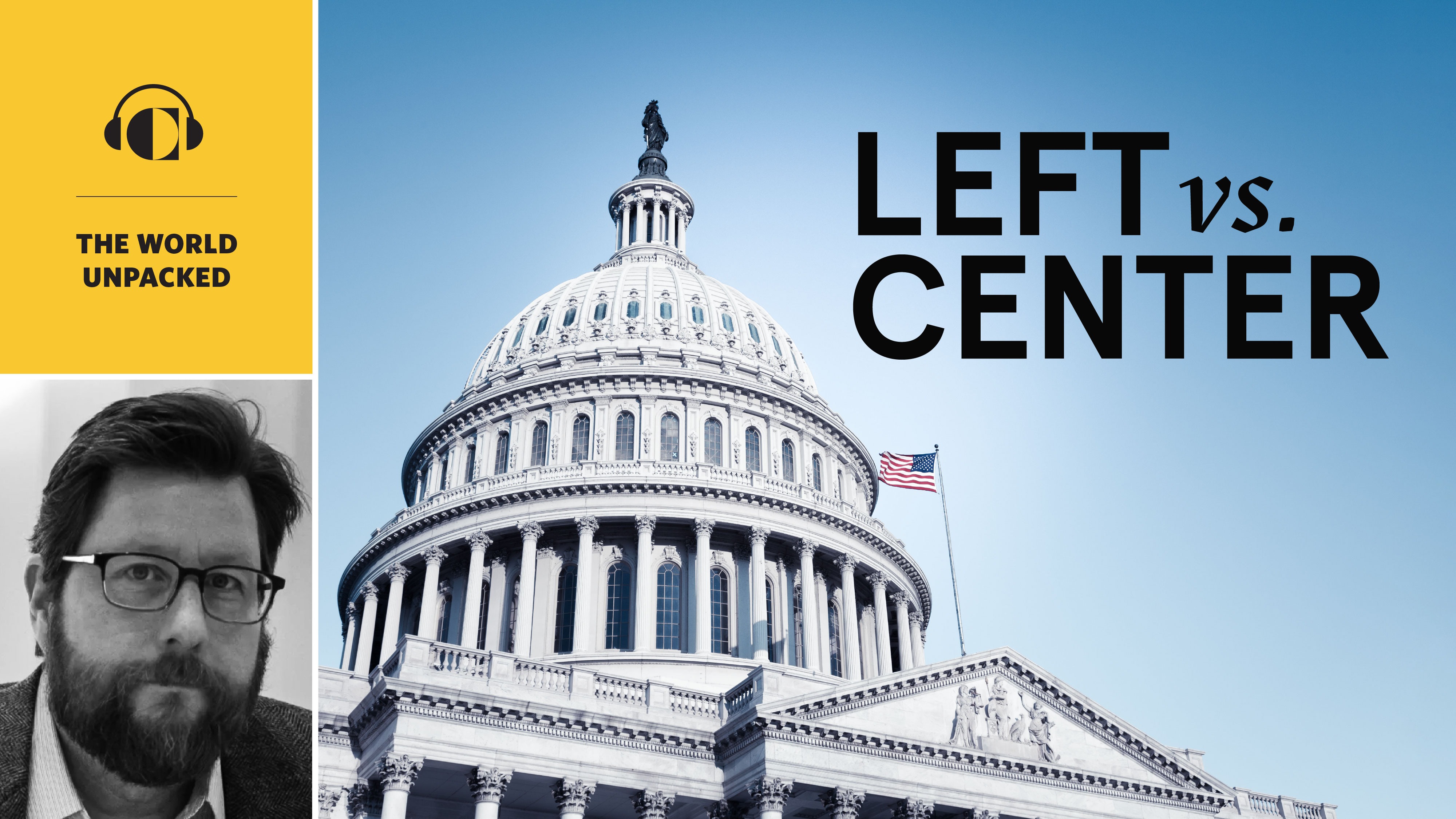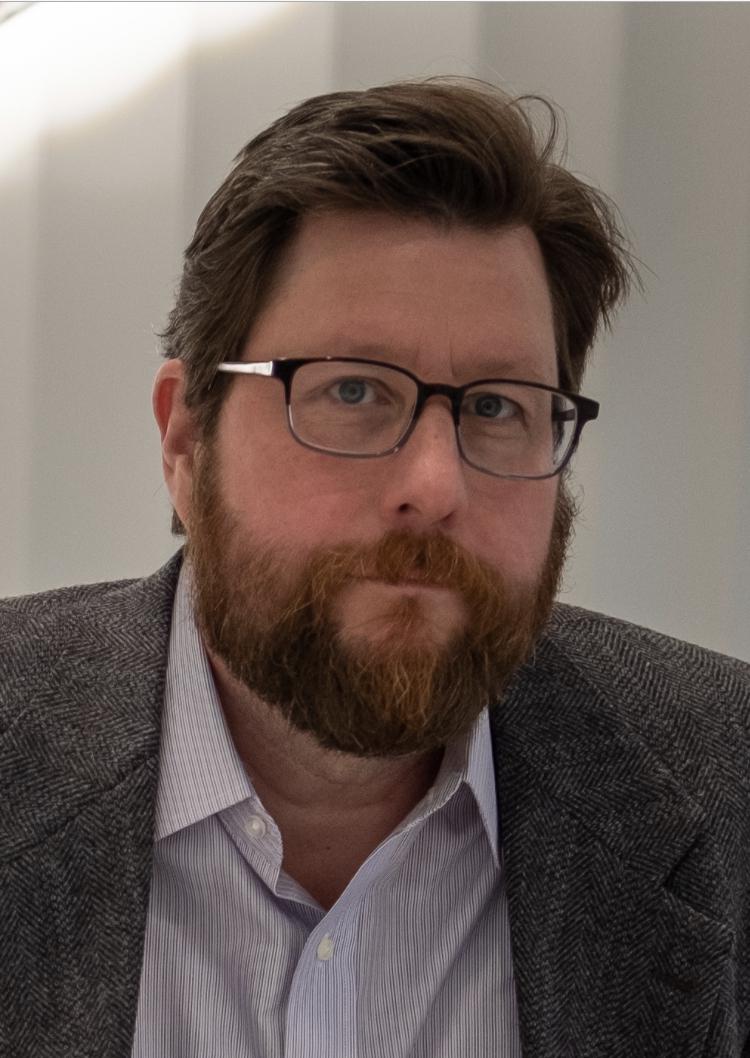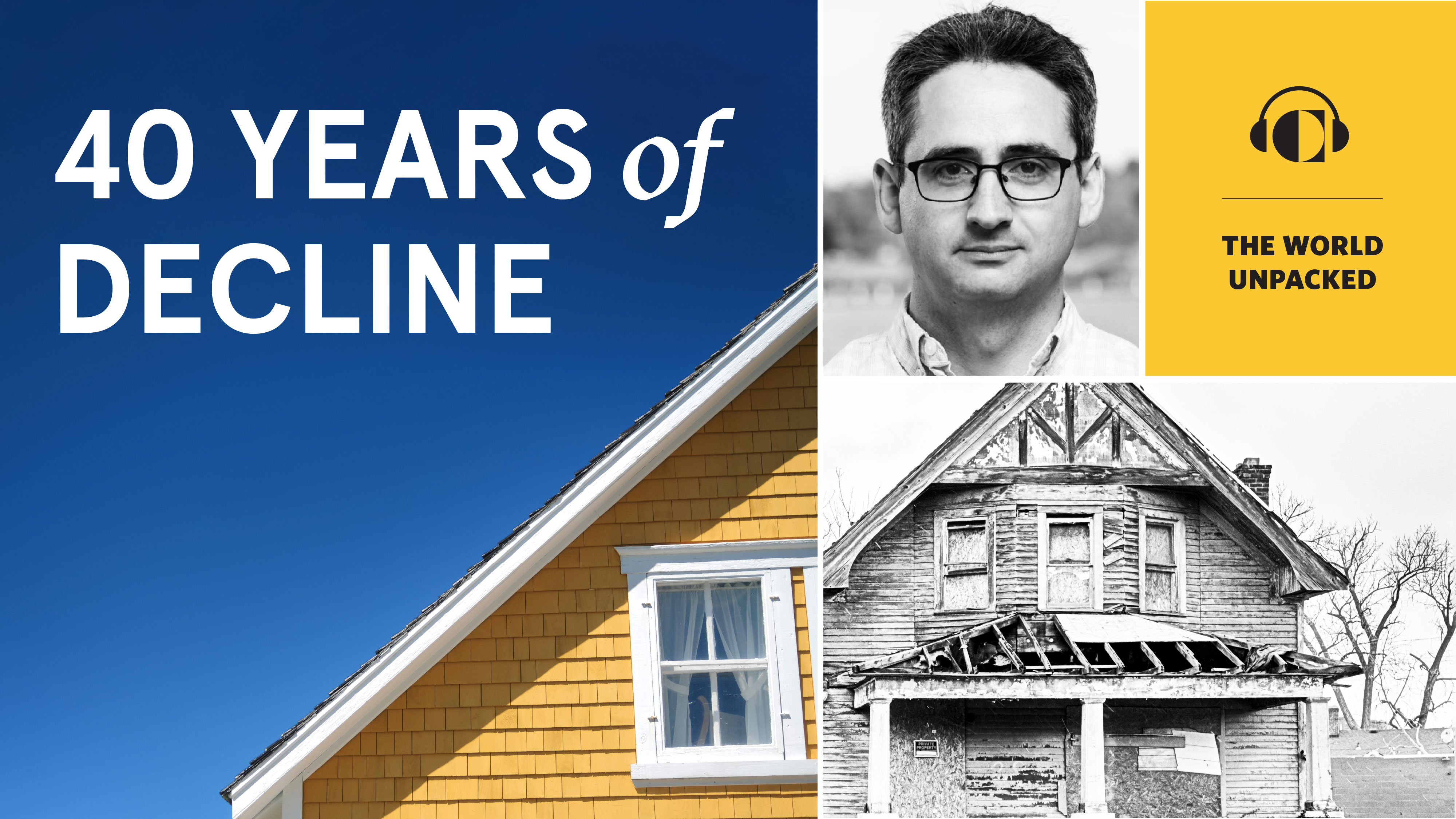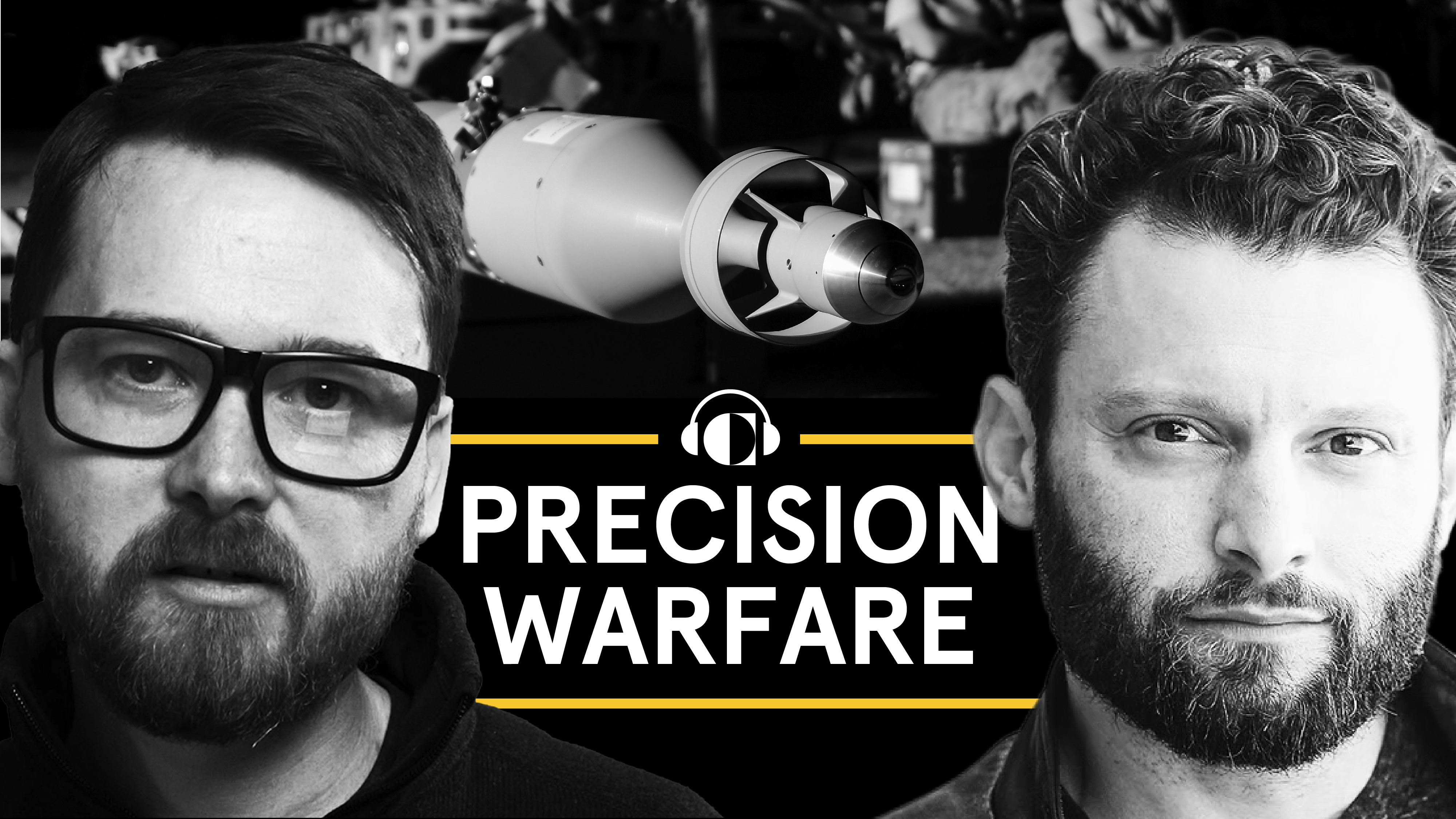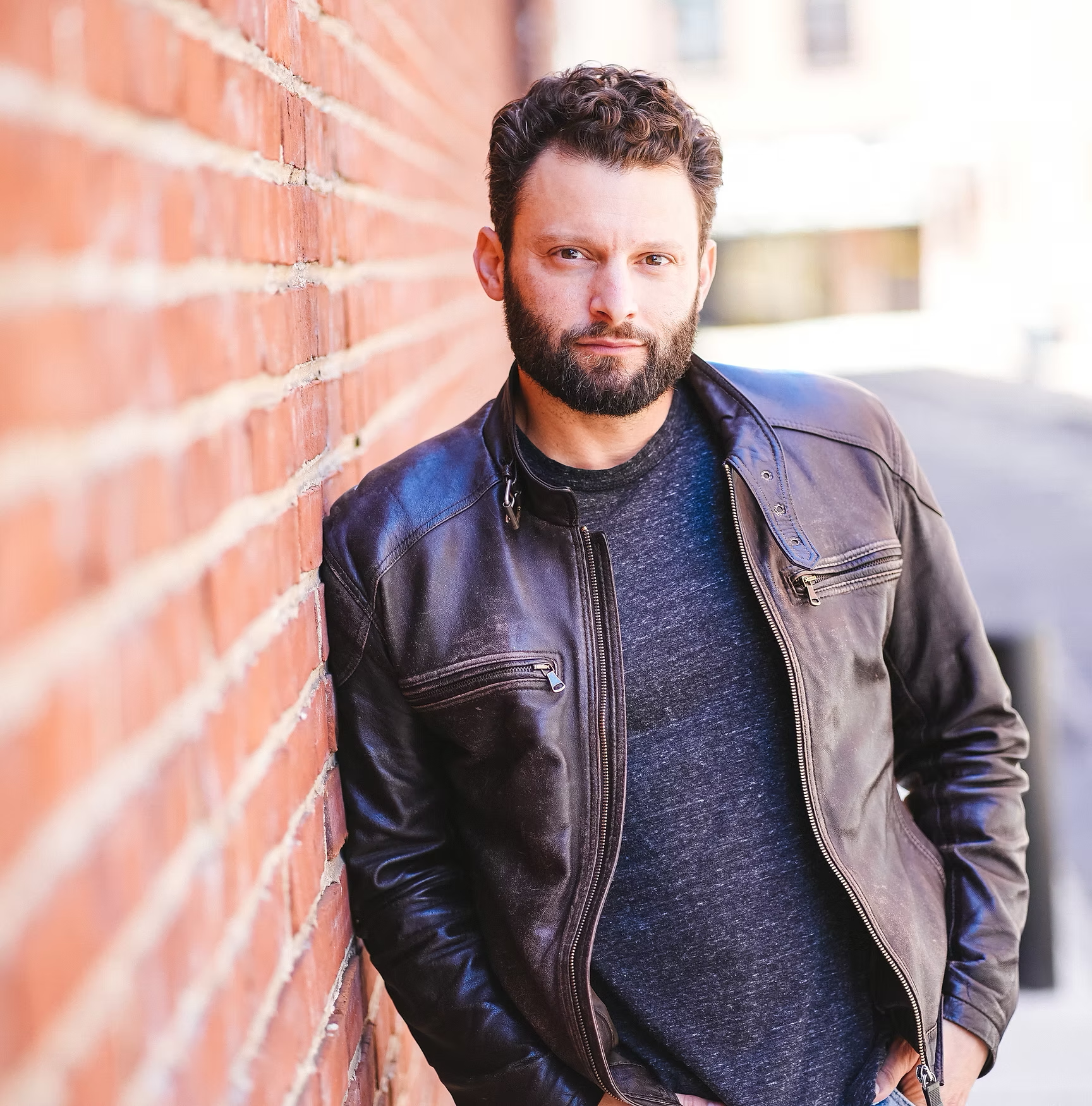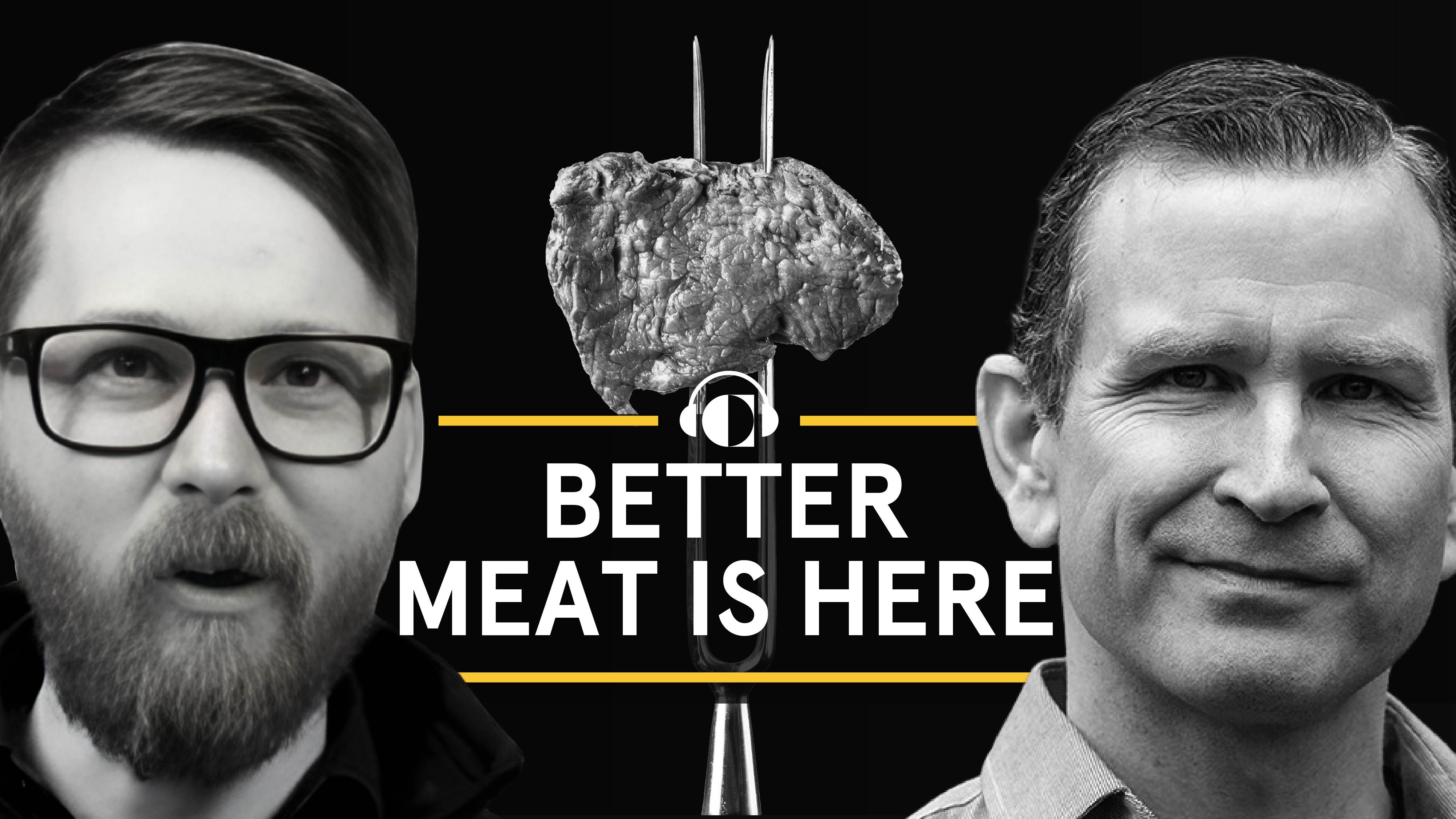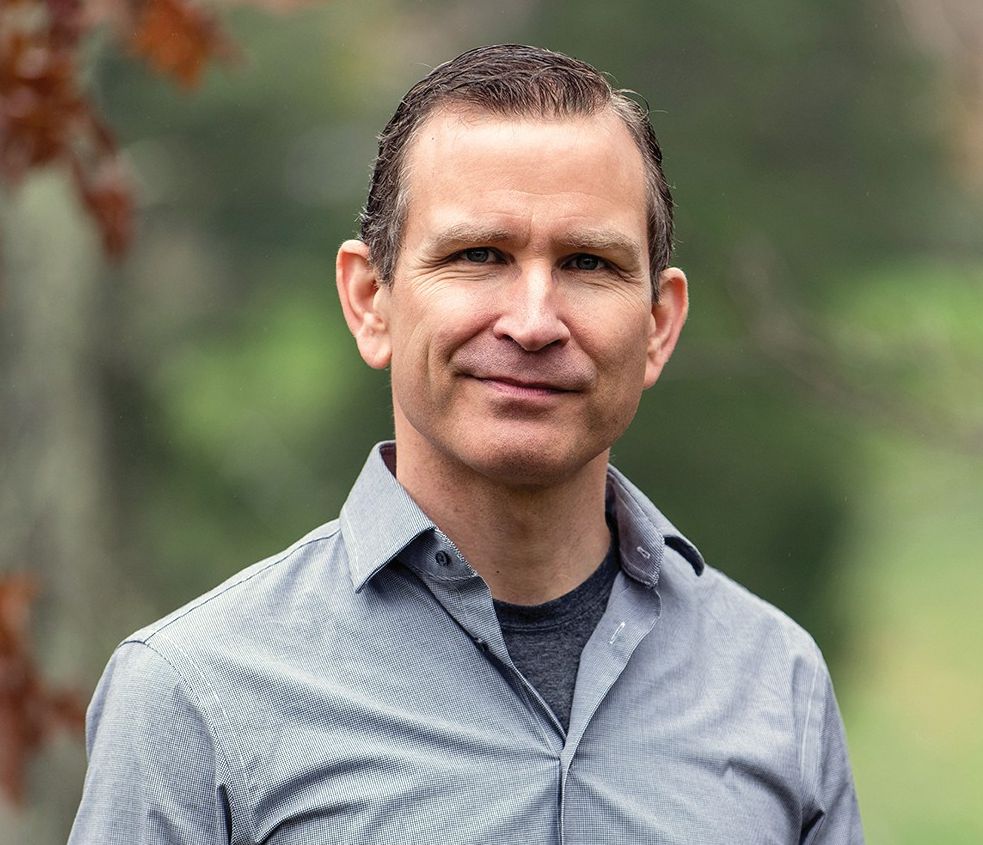MS-13 brought El Salvador to its knees and has spread to a dozen other nations, doing battle with presidents as much as rival gangs. Yet despite its infamy, MS-13 is poorly understood: It has little in common with the cartels, traffickers, or mafias that it’s often lumped in with.
What is the violent logic behind MS-13, and why has it grown steadily more powerful during both crackdowns and truces? Has President Nayib Bukele’s unprecedented brutality finally turned the tide against MS-13 in El Salvador, and does he have a plan for what comes next? If it takes an autocrat to slay a gang, should countries trade one beast for another?
Steven Dudley, author of the award-winning book MS-13: The Making of America’s Most Notorious Gang, joins Jon Bateman for a gripping new episode of The World Unpacked.
Transcript
Note: this is an AI-generated transcript and may contain errors
Jon Bateman: You're about to hear from a man who has not only written the book on MS-13 literally, but who has been face-to-face with gang leaders, mass murderers, and the police and victims that have been locked in a life-or-death struggle with MS-13 in a story that spans continents. MS-13 is one of the world's most infamous gangs, and yet most people know very little about it. Where did it come from? How does it function? Is it a cartel, a terrorist group, or something else entirely? One thing that MS-13 has long seemed to be is an unsolvable problem. An organization that somehow only seems to grow stronger the more you throw at it. But in the last few years, one man, a budding dictator in El Salvador, has seemingly done the impossible by delivering unprecedented blows to MS-13 in its home territory. Are these results real? And is it worth it to trade one kind of beast for another? To help unpack this, I'm joined by Stephen Dudley, author of the book, MS-13. I'm John Bateman, and this is The World Unpacked. Steven, welcome to the show.
Steven Dudley: Thank you for having me.
Jon Bateman: You are in a unique position of having met with, spoken with gangs, spoken with victims, been in court hearings. Most of us have not met a murderer in our lifetimes. You have. What's it like to sit face to face with individuals that are hardened members of a very violent criminal organization? What does that feel like? What does it sound like?
Steven Dudley: I don't know, I guess most people would be surprised to know that it's not any different than you and I sitting here. There is this sense of you're going into these spaces, they're dangerous, or you're talking to dangerous individuals. I have never really experienced them as such. You have to go in just saying I'm just talking to another human being. And in fact, most, if I'm talking to somebody who has killed somebody or killed lots of people, which I have, that's not your first question. You wanna talk to them, and this is with every subject, about who they are. And that is what opens the doors to everything else, is you wanna show genuine interest in them.
Jon Bateman: But I do just want to say, though, you know, you start off this book with the story of Norman. Norman has been accused of five different murders. There's some ambiguity about how many he was actually involved with. When you sit down with him, you don't feel that there's any sense of that. He's a different style of person than.
Steven Dudley: I guess I start from the premise that we are all capable of very terrible things. So that's my baseline. So I don't look at him as any different from anybody else in the sense that we're all starting from this point where we can all be terrible. And that's maybe a horrible thing to say. I think that that's human nature and depending upon your circumstances. And life experience and maybe mentality, all of these things put together leads you to make really bad decisions or do things such as take the life of others. Now think of the circumstances also in which I met him. I met him inside of a detention facility for the first time. Later on I met with him outside of the detention facility. And I was more nervous outside than I was inside and the inside it's a contained environment, it's controlled environment. So if I'm being honest with you, yeah, now we're outside, now, we're in the wild, so to say. So there is a very slim chance that things are going to happen. And there are moments when you are doing a project like this and this MS-13 is notorious for this is they they try and take possession. Of what you're doing in certain respects. I remember him calling me a couple of times drunk and asking me, how's our book going? Obviously, that is going to send shivers down your, it's not our book. This isn't a joint- And what's he gonna think when he reads the product? This isn't a joint project, this isn't, you're not receiving proceeds from this. This is, so yes, there is an element. In all three of those circumstances that you have to manage as a reporter, as an investigator. But over time, I've been doing this now for 30 odd years, you get used to managing those situations.
Jon Bateman: We're gonna talk more about the anthropology of gang life, what brings someone into this world and seduces them down this trajectory. But I think a lot of people listening to this, they've heard the name MS-13. It's been percolating in popular consciousness for some years now. They probably have very little concrete sense of what that organization actually is. So could you just give us a brief picture of, first of all, what type of organization are we talking about? I noticed in your book, you describe them as a street gang. You don't describe them a cartel. You don't describe them is a terrorist group. It's been designated as such now by the U.S. Government, El Salvador government. What do you mean by that? What's their basic nature as compared to some of the other criminal groups in and around Latin America that are maybe more familiar to people?
Steven Dudley: A street gang is the most rudimentary form of organized crime. And at its core, it is a social group. It is a group that under most circumstances has mostly a social function. In the case of the MS-13, it's very often a surrogate family. So first and foremost, it is a social organization. And secondly, it is a criminal organization, and it is a bad one at that. They are not very good criminals. They have remained at the bottom of the food chain of organized crime for decades, which tells you everything you need to know about their ability as criminal operators.
Jon Bateman: Yeah, in reading your book, you chart the evolution of this gang through generations. One thing that's clear is they become much, much more violent and larger and more powerful over time. And yet, in another sense, it feels like they're kind of stuck in an early stage of evolution where they've tried and failed several times to get involved in international drug trafficking, for example. Not for lack of trying, but it never quite seems to come together, to become a major player there.
Steven Dudley: It's more than that. The people who become or try to become part of international drug trafficking rings are ostracized, are removed, are pushed out, are vilified. This is the thing. It's not just that they fail. It is that if you try, then you're no longer one of us and that is the thing about the MS-13 and many gangs like it is their, that their ability to enter into this more sophisticated organized crime rings, international drug trafficking, even things like human trafficking or human smuggling, for which they are mostly sort of sidelined players or assistants or intelligence operators and not the main operators, that avenue is closed as much by other groups that don't want to work with them because they’re such bad criminals? As by them, they decide, no, actually you are, what they would say is that you're going against the barrio, right, the neighborhood, the core ethos of who we are. Because they understand the core ethos who they are is social in nature. And that violence is part of that social nature. The violence that comes out is a collective violence. This is, this is part of being part of the gang. It's, I think the easiest analogy, at least for me to wrap my head around is being on a sports team. I played football and that sort of spree decor that comes from a collective expression of violence on a football field is not too far away from that collective expression of violence that a gang has. And that camaraderie that's built around that. That's a social thing.
Jon Bateman: One of the aha moments for me in the book was when I read this astonishing detail that in the Salvadoran version of this gang, and we should talk about where this gang operates around the world, murder is a required part of initiation into the gang. And it made me realize that, for one thing, this initiation ritual is itself a major cause of cycles of violence, right? Because they've got their rival gangs. So you need to kill a member of 18th Street to maybe get into MS-13, maybe then a member 18th Street responds in kind. So you get into this kind of cyclical nature where it's unclear actually what people are fighting for other than a ritual that bonds them together and that kind of pressurizes them together. So that now you're on our side, now you've proven your commitment and it would be very dangerous for you to leave.
Steven Dudley: The element also of street gangs is that they need an adversary. This is part of what is their own narrative, their own story, and that is a very important part. They actually need that adversary. So they are a surrogate family with adversary that sometimes commits criminal acts. In a systematic nature, such as selling drugs, extorting people en masse. Those are things where they have excelled in the criminal sphere, and what we would think of as traditionally organized crime. But the rest of it is haphazard, they're very sloppy, they tell on one another. And cooperate with authorities. They are not good partners. That's why nobody outside of the gang is really looking for them as partners. There's no partnership between the Sinaloa Cartel and the MS-13. There's a reason for that. It's because they're bad criminals in most respects.
Jon Bateman: And when we're talking about any organized crime, it just strikes me that there's so many layers of cultural tropes that we need to wade through in order to get to the ground level truth of a group like MS-13. We know the Godfather, we've seen Sicario, Narcos, you know, whatever it is. Maybe our familiarity as Westerners is often with models of much more organized and discipline groups, richer groups. Groups that are better equipped, but also fantasy versions of these groups that are even more sophisticated and better organized than the realities even of those groups. I wonder if you could tell us just at a basic level where MS-13 is operating around the world and how it started from a small gang of friends and hoodlums in Los Angeles and then became this multinational threat.
Steven Dudley: Well, they're mostly built from refugees that have fled a civil war in El Salvador. And there are several civil wars happening at this time in the 1980s. That is that these are military dictatorships that are supported by the United States. And so this process whereby these people are seeking refuge and landing in the most dense part of Los Angeles. And then finding themselves under threat from a different type of threat, which are the multiplicity of mostly ethnic-based gangs in that space, and then creating their own version of it. Their own version it starts innocently enough around heavy metal music. They love heavy metal, which again, we think about sports, some of the first gangs are formed around sports teams. These later gangs are formed around sports teams. And in this case, music.
Jon Bateman: And so this is the 1980s, so we're talking about Ozzy Osborne, Black Sabbath, I mean...
Steven Dudley: And they've got long hair and they're wearing leather jackets. Yes, the whole thing, ripped jeans, yes. One of their first clicks is called The Stoners. You're getting an idea. Again, going back to this idea, this is social. This gang has really never lost its social function in that regard. In that regard.
Jon Bateman: And this is the origin of this kind of devil imagery, right? How much of this actually goes back to Ozzy Osbourne?
Steven Dudley: A lot of that symbolism goes back to Ozzy Osbourne. They appropriate it, of course, as all gangs do with symbols. And one of their main symbols is what they call the beast, la bestia. And for them, la bestia, the beast is Satan, right? So you have, on the one hand, la bestia, Satan. And on the other hand, you have this concept of el barrio, the neighborhood, which is the sort of yin and yang of the MS-13. And this is what evolves. What evolves is a sense of, yes, it's my surrogate family, but my surrogate family also requires that I participate in collective acts of violence, which include passing around a machete and everyone taking a whack at the rival gang member who we've just captured and dragged into the local park. Yeah, so this is this is the paradox. Yeah, the living paradox of the MS-13 and what emerges is this really powerful group because it combines all these ideas.
Jon Bateman: We think about Ozzy Osbourne, it embodies the binational, multinational cultural flow that's happening here, right? Where you've got a group of people from El Salvador coming to Los Angeles, imbibing U.S. pop culture, but also living kind of between two worlds. Many of them then later are deported back to El Salvador, having served time in U.S. prisons, become hardened by prison life. And gang life in the United States, then becoming a kind of next generation, next version of MS-13 in El Salvador and gradually rising to power there. So, as we are today, where else are they operating? We know they're in El Salvador, or were, they're the United states, including we're in Washington, DC, right now, there's MS- 13 in the Washington, DC, area, is that not correct?
Steven Dudley: There are MS-13 in all the major Latino hubs of the United States. Where you have Salvadorans, where you have Guatemalans, Hondurans, you've got a decent chance that there is gonna be some remnants of MS- 13. There are major redux here in DC, in Long Island, in Boston, in Tennessee, in Dallas. Obviously Los Angeles, where they were born, and Chicago, there are loads of different spots in which you will find MS-13. Abroad, in El Salvador, obviously, Guatemala, Honduras, increasingly Mexico, other places in small amounts in Central America, but also in Europe, right? So... Give or take a dozen different countries, you will have MS-13 presence.
Jon Bateman: Can we put a number on this? Do we know how many gang members are out there? And one of the things I learned from you is it's unclear what a gang member means, how to count them. But do you have a number that you can put on it? Or are there useful numbers in circulation? Maybe thinking about them in the landscape of gang life in the countries that they operate.
Steven Dudley: Let's take El Salvador as an example. The estimates by the police were in the tens of thousands, so close to 30,000 members. So anywhere between 20 and 30,00 members. And then you have a whole set of other people that they defined as collaborators. This becomes very important for the Bukele crackdown. But just to sort of differentiate what are full-fledged members which would be, who have gone through a ritual to become members, as opposed to people who are still outside of the gang. But it is incredibly hard to determine on an international level what we are talking about. Who is a gang member is and remains a very important question. If you leave the gang, are you still a gang members? From the gang perspective, there are very strict rules about leaving the gang. There's really only one way to leave the gang and that's via the evangelical church, which goes to the social aspect again of this. The only competing community with the gang or the gang allows it to compete with them is the church. And this is the avenue through which you can leave. But your departure is normally under most circumstances, it's defined under something called, they call, calmado, which would be calmed or semi-retired is the way I describe it. Because you can always be called back into action or theoretically called back in to action. This doesn't happen. Most of these guys are working stiffs. They have families. They age out and they might interact with their former gang on a social level, but they're a very little utility for an active gang member. So that doesn't happen, but there's where your suspicion comes from, from the police perspective to the point where they will not just demonize and vilify those members who say they're ex or who say they’re calmado or calmed or semi-retired. But to prosecute them. So this is the tension that exists as we try and deal with this issue is our ability to look at them and say, are these guys redeemable? Can they be part of society or the other end of the spectrum? Are we going to just lock them all up? Is that our answer? And that certainly brings us to a guy like Bukele.
Jon Bateman: So, Bukele, he's a universe unto himself. He's the young, charismatic, right-wing, kind of neo-authoritarian president of El Salvador, came into office in 2019 when he was, I think, 38 years old, on a promise of crushing the gangs in their spiritual home of El Salvador. That's certainly where MS-13 was kind of originally constituted and became a major violent and even political force, and what was the world in which he was coming into? By that point, by 2019, so many things had been tried and largely failed. Your book talks about times when there were crackdowns that didn't seem to go anywhere, and also when there were truces and peace movements, and it seems like no matter what people were doing, it actually perversely strengthened the gang. What was the kind of menu of options the policy makers have been working with prior to book alien what kind of results were they getting
Steven Dudley: Mostly they were taking from the United States playbook, which had been established in Los Angeles in the late 1980s and early 1990s, which was to increase sentencing, to have three strikes laws, to enhance sentencing if you were a member of a gang or a known member of the gang or you carried certain type of weaponry. So it was a lot about incarceration and militarization of the police. This spreads in the U.S. and then the U.S. eventually exports this model to El Salvador. So that's where you see the first crackdowns of the MS-13 and their rivals, the 18th Street, in the early 2000s. And they call it a hard line, a mano dura, or hard line. Then later there's a super mano dura. And this leads to the first major maturation point for the MS-13 in El Salvador. And that happens inside the prisons. And this is the thing I think we really need to wrap our heads around is that the prisons aren't so much a space whereby a group goes to die. It's very often a space where a group thrives. It thrives because these are controlled spaces. These guys are safe now. The leadership in this instance was safe. They could reestablish discipline, rules, means by which they could systematically extort parts of the economy. In their case, they focused on the bus system and make the amounts of money that they had never made before. So the prison serves as an epicenter of organization and expansion for the gang. Then later on, they are, because they're such a powerful group. They can then organize and pressure from their spot in prison to push for things like a truce.
Jon Bateman: The prison aspect of this, it's got to be maddening for a policymaker because it has this wicked problem feel to it where squeezing the gang actually empowers them further and they come back in a more powerful form that because gang members know that they will eventually pass through the prison system and that's a situation in which they are very physically vulnerable, they lack good ration supplies, clothing, they need care and feeding, they protection from other groups. The gang can offer those things and almost become its most powerful concentrated form within the gang at points you describe different prisons as the de facto headquarters of MS-13 and other gangs. So that seemed like a failed experiment, imprisoning as many as possible, the gang morphs and becomes ever more powerful. That brings us to the truce. And this was more than a decade ago that this was tried in El Salvador. Opposite approach, one might say. Let's just do a deal with the gangs and get them to all calm down.
Steven Dudley: A deal that wasn't recognized in the same way that it would be, say for the Northern Irish government and the Brits came to the table with the IRA. Right. That's not what happened there. All of this is happening in the shadows. All of this is under the table. There's nothing that's codified. It doesn't go through Congress. It doesn't, there isn't a process, a peace process or anything like that. It's just a truce and it's just for concessions, immediate concession for the gang leaders. To take them out of maximum security prison, put them into medium or minimum-security prisons so they can reestablish their control over their rank and file, which they felt like they had lost in the previous years. There's a very important element to this, which is very political, which is the promise of the gangs to lower homicides. It's almost like a faucet they can turn on and off. And this is a powerful lever that the gangs have, not just the MS-13, but the 18th Street as well. And so they turn on and off this faucet in order to leverage their interactions with the government.
Jon Bateman: Yeah, so during these truce or pact periods, the gangs, including MS-13, agreed to turn down this faucet, turn down the rate of homicides in return for a variety of concessions, better treatment in prison and the like, but nothing that systematically weakened the power of the gangs. And if anything, I guess there was a concern that there's a kind of quiet legitimation of them or an allowance of the structure to continue. And so it seemed again, that these series of truces or pacts were failed experiments. They didn't destroy the gangs. These were kind of temporary Band-Aid solutions. So that brings us to Bukele. So he comes into office and he has both of these templates available to him. The crackdown template and the truce template. And my understanding is in the initial phase of his presidency, he pursued some combination of both. And then eventually it fell apart and something much, much more aggressive came in its place.
Steven Dudley: He campaigned on a crackdown, and what he was pursuing behind the scenes was arranging this pact. And then we get a point at which there is a major rupture. This was after other periods in which the gangs would open that faucet, that homicide faucet. Maybe that's a terrible metaphor, but they would open this possibility and commit series of murders in order to pressure the government. For certain concessions. And at a certain point, it appears that Bukele just said, no más.
Jon Bateman: And that brings us to the face that we're in now, where Bukele amassed extraordinary powers and has been deploying them absolutely ruthlessly in the country. I think I've read that tens of thousands of individuals have been arrested, often with very minimal due process. Many of them have been put in prisons of unbelievably harsh conditions, where there's actually no prison sentence. They're just told that they'll be there for life. No family visits, very little physical protection. The military has joined in policing more than ever before, siege tactics where they're surrounding cities and going in with squads and picking up people. I mean, really, really strong medicine. But I was astonished to see the results. The average number of Salvadorans that are killed has gone from one to the highest in the world. To the one of the lowest in the world. We've moved somehow from this wicked problem, this Gordian knot that could not be cut to a situation where Bukele cut the knot. Is that right? Is this real? Has he crushed the gangs? And if so, at what cost?
Steven Dudley: I think for the moment, you can say with a fair amount of confidence, because we are now three years in, that he has completely transformed what the gangs were, if not, crush them. It's perhaps a strong word. I think that there are remnants of these gangs. There exists a knowledge base and understanding of how to organize inside the spaces where they're being pushed now, which is largely prison, as you're pointing out. But he has, this project has, I think, almost to the point maybe surprised them at the results. So they had loads of intelligence that they gathered over more than a decade in their possession and all these lists of names of people that they suspected were collaborators and members and everything else. And they just decided to throw them all in prison without, as you said, due process. So, if as a country, as a society, you are willing to accept that cost. And it appears that the Salvadoran, the Salvadoran people are more than willing because we can see in the polls, we can also with the election results that they are willing. To accept that costs. Then that is it. That's a, that's a result that they, that they wanted and that they got. Long-term, of course, you have to wonder, first of all, can the gang reconstitute itself or some new version of whatever they are? And did one criminal regime replace another? A different type of criminal regime, but a criminal regime nonetheless.
Jon Bateman: I have to say, just putting my cards on the table here, I came away from reading your book a lot more conflicted about Bukele than when I started. Now, your book is not about Bukele, but it's about everything that preceded him. And it really does paint a nightmarish image of what it is like to be stuck in a society with no solutions to such hellish problems. You describe people taking a bus for an hour to go to a school in a different part of the country because they literally can't go to the one right next to them because that's some other gang's territory. You describe situations where the surrogate family of the gang actually subsumes the real family to where gang members are literally coerced into exploiting or killing their own genuine family members. It's rough, it's rough. I can understand why Bukele is so popular. He somehow was able to solve this problem. Now, he's created a different problem, but maybe that's a chance worth taking. Is that a fair perspective? And what does it mean that someone like me, who is a kind of liberal internationalist, actually is so blown over by these results that I'm willing to consider that.
Steven Dudley: I think you're human. I think that that is an absolutely acceptable position. I have plenty of people around me, Salvadorans I'm talking about, people I know who go back and forth still. I'm based here in DC. I go back and forth and they have that position. This was so terrible, this was the medicine. That we had to take. My issue comes now that they've done this. What happens now and why maintain this this facade at this point yeah you you've gotten you've got over the hump what are you doing now what what's the project what's the plan now just leave it in place forever because that looks like the plan.
Jon Bateman: Doesn't seem like there is a clear plan to transition away from this state of emergency to restore democracy in El Salvador. I mean, that would be a generational project in and of itself to kind of undo the presidentialization of the regime, restore independence to the judiciary, which has been thoroughly hollowed out. And then also, you make a really, key argument in the book that the root causes of gangs are ultimately lack of opportunity, poverty, other forms of violence and predation, is there a plan to solve any of that?
Steven Dudley: None that I can see. There is certainly talk of more social programs, more health care, more educational programs, but any real resources being put in that direction. Leaving aside all the other questions about rule of law, constitutional order, police state, all of this that is happening now with regards to do to the judicial system, just. Reconstituting what are kind of basic services or putting the type of investment that is needed into these kinds of services is just not I just don't see it as part of the agenda. Yeah. And that's unfortunate because this is your moment. This is your moment to intervene and break this cycle in a way that hopefully will be longer lasting than what we've seen in the past. I say that because I don't necessarily know what comes next in terms of crime. I do think something else comes though. I don t think this is the end of the story. This might be the end for the MS-13 in El Salvador as we knew them. But is this the end organized crime of gangs? I mean, I think history tells us otherwise, and we cannot arrest... He simply has shown us that we cannot arrest ourselves out of this problem.
Jon Bateman: Yeah, yeah. A gang, I think, is a kind of self-replication machine in a way, right? I mean, you describe in the book so many times in which these nebulous morphing social groups have reconstituted in new forms. I lost track of the number of committees and leadership structures and CEOs. You exert pressure and then in this case, MS-13 still exists in the United States, still exists and Guatemala and Honduras and could perhaps re-emerge in some form in El Salvador. I guess that's maybe kind of where we should end, which is can Bukele's tactics or should they be internationalized? Because this is something that he's very proud of and he's putting forth into the world. We had an episode a couple of weeks ago where we talked about Bolsonaro in Brazil and the rise of a more coherent political project internationally to unite different right-wing forces. Figures like Trump and Bolsonaro are kind of copacetic. Bukele is now a cause celebre in the American right. And there are people in Honduras and elsewhere who are clamoring for the duplication of those tactics in other settings. What do you think of that?
Steven Dudley: I think it's terrifying. I think its unrealistic and I think it's terrifying. It's unrealistic because El Salvador is the size of Massachusetts. So it's not exactly an easy model to replicate. Might be easy if your country is the side of Massachusetts, but most countries are not the size of Massachusetts. I heard this rhetoric during the Ecuadorian presidential election and made me chuckle. I think Ecuador is like 20 times the size. Of El Salvador. You're not going to apply it. Plus, these are different criminal organizations, different levels of sophistication, different levels penetration into the government apparatus and into the political elite and economic elite structures. So these are, these are different problem sets that you're talking about. And then you're also moving away from the core issue. The core issue has to do with the inequities, the fact that these these kids think they have a community. There is no community. What you have to do in my mind is always think about how do you create another community, a competing, something that's going to compete with this perverse criminal community that's being created side by side with yours. That's why I always think of this as more of a competition amongst those types of communities. The church is the... Is the competition, right? That's a community, right. That's why you create things like youth leagues and schools work so hard to do after school programs. Those are all communities. That's what you're trying to do. And if you forget about all that, if you forgot about that part, then where are we? I don't see how you... Because it's not just about jobs, and none of that really works anyway, because you see, there are elements of this that go beyond the idea of, do you have your basic needs met? And I think we need to be thinking about those things. I just think that this is a really dangerous, dangerous time, because the other side of equation is that you don't just get rid of this enemy, this known enemy, but you create space for a different type of monster. And we're talking about Bukele, but we could be talking about many other governments, including our own. What other monster are you creating when you empower somebody to fight this crime problem? And that is, that's a scary proposition. And I think we're going through a bit of that same process here in the United States where we're creating a monster in many respects and in all the different paramilitary and military sections that go with that monster. And that's part of this. It's the other side of the coin, but that's what happens when you are. When you are fighting these battles against organized crime is that you are empowering another type of monster.
Jon Bateman: MS-13, you described at one point, is the beast. And the beast was swallowing El Salvador. And in order to slay that beast, they are now riding the tiger of Bukele. And whether this is a good idea for them or for other countries, only time will tell. But I think you're right to point out that that does not displace the core need to create an alternative community so people don't need this very twisted predatory corrosive cancerous surrogate family, but actually have a wholesome family that's available to them. This has been a really timely discussion. Steve, really wanna thank you for your time today.
Steven Dudley: Thanks for having me.



